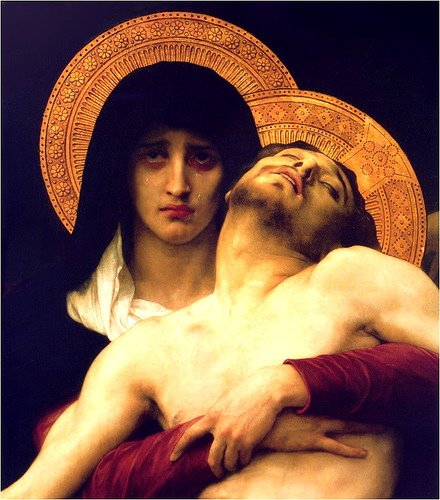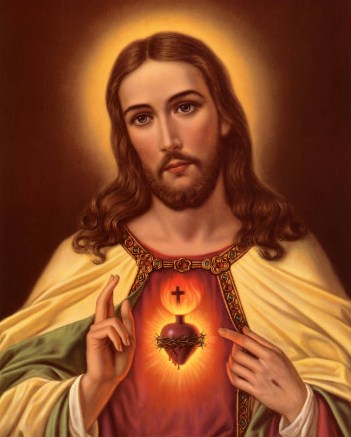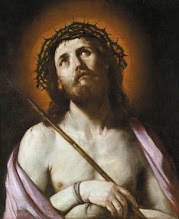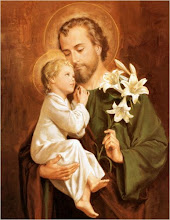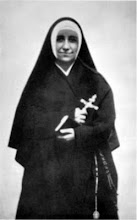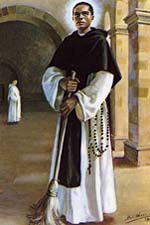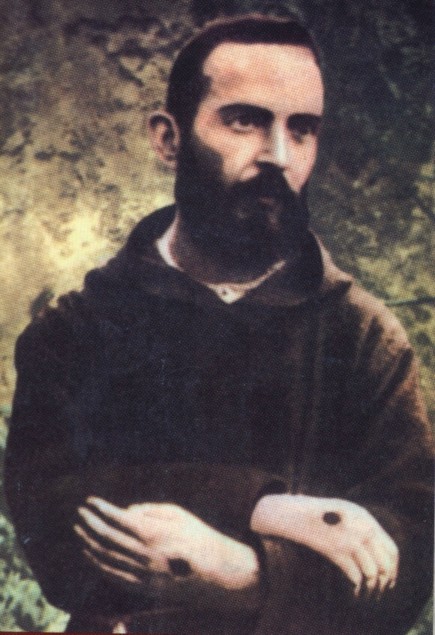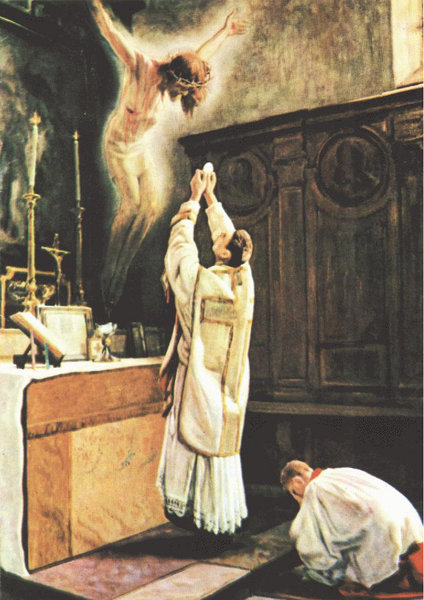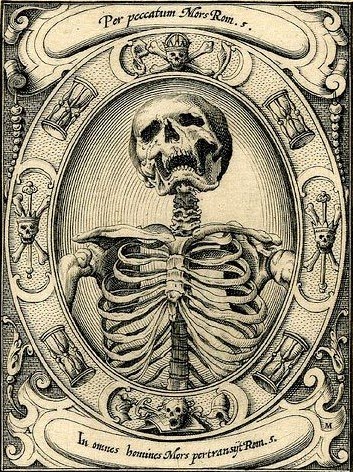31 July 2009
The Bad Death
If you ask me what most people understand by a bad death, I will reply: "When a person dies in the prime of life, married, enjoying good health, having wealth in abundance, and leaves children and a wife desolate, there is no doubt but that such a death is very tragic." King Ezechiel said: "What, my God! It is necessary that I die in the midst of my years, in the prime of my life!" And the Prophet-King asks God not to take him in his prime. Others say that to die at the hands of the executioner on the gallows is a bad death. Others say that a sudden death is a bad death, as, for instance, to be killed in some disaster, or to be drowned, or to fall from a high building and be killed. And then some say that the worst thing is to die of some horrible disease, like the plague or some other contagious malady. And yet, my dear brethren, I am going to tell you that none of these are bad deaths. Provided that a person has lived well, if he dies in his prime, his death will not fail to be valuable in God's eyes. We have many saints who died in the prime of their lives. It is not a bad death, either, to die at the hands of the executioner. All the martyrs died at the hands of executioners. To die a sudden death is not to die a bad death either, provided one is ready. We have many saints who died deaths of that sort. St. Simeon was killed by lightning on his pillar. St. Francis de Sales died of apoplexy. Finally, to die of the plague is not a dreadful death. St. Roch and St. Francis Xavier died of it. But what makes death bad is sin. Ah, this horrible sin which tears and devours at this dread moment! Alas, no matter where the poor, unfortunate sinner looks, he sees only sin and neglected graces! If he lifts his eyes to Heaven, he sees only an angry God, armed with all the fury of His justice, Who is ready to punish him. If he turns his gaze downwards, he sees only Hell and its furies already opening its gates to receive him. Alas! This poor sinner did not want to recognise the justice of God during his life on earth; at this moment, not only does he see it, but he feels it already pressing down upon him. During his lifetime, he was always trying to hide his sins, or at least to make as little of them as possible. But at this moment everything is shown to him as in the broad light of day. He sees now what he should have seen before, what he did not want to see. He would like to weep for his sins, but he has no more time. He scorned God during his lifetime; God now, in His turn, scorns him and abandons him to his despair. Listen, hardened sinners, you who are wallowing now, with such pleasure, in the slime of your vice, without casting even a thought upon amending your lives, who perhaps will give thought to this only when God has abandoned you, as has happened to people less guilty than you. Yes, the Holy Ghost tells us that sinners in their last moments will gnash their teeth, will be seized by a horrible dread, at the very thought of their sins. Their iniquities will rise up before them and accuse them. "Alas!" they will cry at this dread moment, "alas! Of what use is this pride, this vain ostentation, and all those pleasures we have been enjoying in sin? Everything is finished now. We have not a single item of virtue to our credit but have been completely conquered by our evil passions." This is exactly what happened to the unhappy Antiochus, who, when he fell from his chariot, shattered his whole body. He experienced such dreadful pain in his entrails that it seemed to him as if someone were tearing them out. The worms started to gnaw at him while he was still alive, and his whole body stank like carrion. Then he began to open his eyes. This is what sinners do -- but too late. "Ah," he cried, "I realise now that it was the evils which I committed in Jerusalem that are tormenting me now and gnawing at my heart." His body was consumed by the most frightful sufferings and his spirit with an inconceivable sadness. He got his friends to come to him, thinking that he might find some consolation in them. But no. Abandoned by God, Who gives consolation, he could not find it in others. "Alas, my friends," he said to them, "I have fallen into a terrible affliction. Sleep has left me. I cannot rest for a single instant. My heart is pierced with grief. To what a terrible state of sadness and anguish I am reduced! It seems that I must die of sorrow, and in a strange country, too. Ah, Lord, pardon me! I will repair all the evil that I have done. I will pay back all I took from the temple in Jerusalem. I will present great gifts to the temple. I will become a Jew. I will observe the Law of Moses. I will go about publicising the omnipotence of God. Ah, Lord, have mercy on me, please!" But his illness increased, and God, Whom he had scorned during his life, no longer had ears to hear him. He was a proud man, a blasphemer, and despite his urgent prayers, he was not listened to and had to go to Hell. It is a grievous but a just punishment that sinners, who throughout their lives have spurned all the graces which God has offered them, find no more graces when they would like to profit by them. Alas! The number of people who die thus in the sight of God is great. Alas! That there are so many of these blind people who do not open their eyes until the moment when there are no further remedies for their ills! Yes, my dear brethren, yes, a life of sin and a death of rejection! You are in sin and you do not wish to give it up? No, you say. Very well, my children, you will perish in sin. You will see that in the death of Voltaire, the notorious blasphemer. Listen carefully and you will see that if we despise God always and if God waits for us during our lives, often, by a just judgment, He will abandon us at the hour of our death, when we would like to return to Him. The idea that one can live in sin and give it all up one day is one of the Devil's traps which will cause you to lose your soul as it has caused so many others to lose theirs. Voltaire, realising that he was ill, began to reflect upon the state of the sinner who dies with his conscience loaded with sins. He wished to examine his conscience and to see whether God would be willing to pardon him all the sins of his life, which were very great in number. He counted upon the mercy of God, which is infinite, and with this comforting thought in mind, he had brought to him one of those priests whom he had so greatly outraged and calumniated in his writings. He threw himself upon his knees and made a declaration to him of his sins and put into his hands the recantation of all his impieties and his scandals. He began to flatter himself on having achieved the great work of his reconciliation. But he was gravely mistaken. God had abandoned him; you will see how. Death anticipated all spiritual help. Alas! This unfortunate blasphemer felt all his terrors reborn in him. He cried out: "Alas, am I then abandoned by God and men?" Yes, unhappy man, you are. Already your lot and your hope are in Hell. Listen to this godless man; he cries out with that mouth sullied with so many profanities and so much blasphemy against God, His religion, and His ministers. "Ah," he cried, "Jesus Christ, Son of God, who died for all sinners without distinction, have pity on me!" But, alas! Almost a century of blasphemy and impiety had exhausted the patience of God, Who had already rejected him. He was no more than a victim which the wrath of God fattens for the eternal flames. The priests whom he had so derided but whom, in this moment he so desired, were not there. See him as he falls into convulsions and the horrors of despair, his eyes wild, his face ghastly, his body trembling with terror! He twists and turns and torments himself and seems as if he wants to atone for all those previous blasphemies with which his mouth had been so often sullied. His companions in irreligion, fearing, lest someone might bring him the last Sacraments, something which would have seemed to them to dishonour their cause, brought him to a house in the country, and there, abandoned to his despair ...
